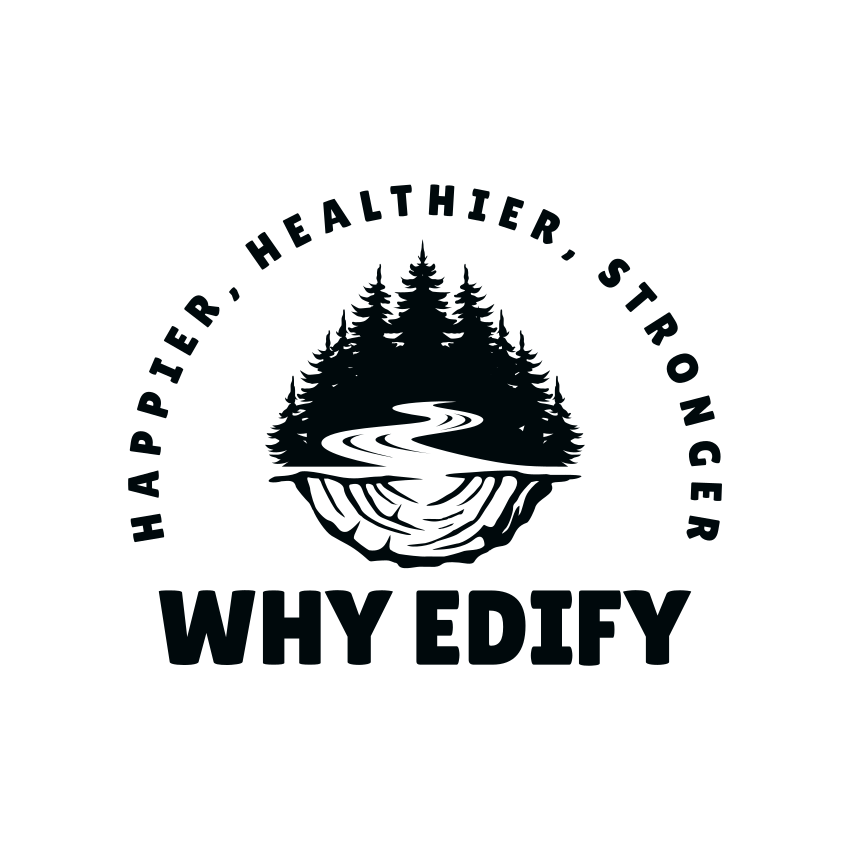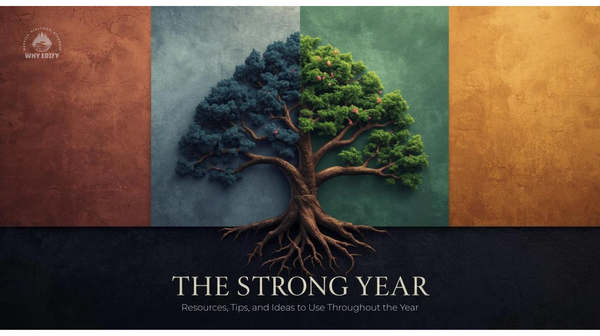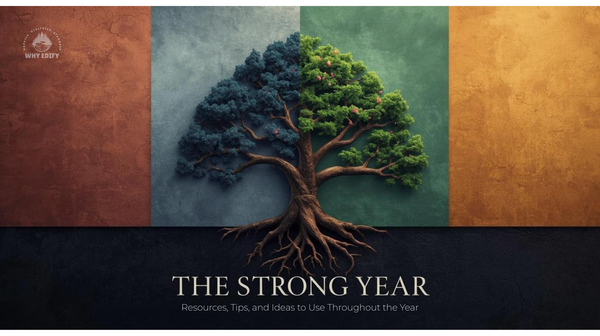Student Focus, Curation, and the Power of Reading
Topics for this week include keeping students focused at the end of the school year, the power of curation, and how reading helps you live longer.

As an Amazon Associate, I earn from qualifying purchases. This page contains affiliate links. This helps support Why Edify. Thank You! Read more here.

The Friday Five
Become a SupporterI hope you felt nothing but appreciation this past week. Today, it's my birthday and I have a gift for you. I recently put together this End-of-the-Year Success Blueprint for everyone in our Why Edify Community. You can find it here.
Watch the video below to learn more about it.
I wish I could give each and every one of you a well-deserved raise. Your compassion and dedication are inspiring.
Reflection Questions:
- Which of the end-of-year activities mentioned could you adapt or implement in your current teaching context to keep students engaged during the final weeks?
- How could you incorporate curation assignments into your curriculum to develop your students' critical thinking skills while making learning more engaging?
- Looking at the balance between professional dedication and personal well-being, how can you better utilize "well-timed personal days" and maintain a "supply of cheerful thoughts" to sustain your teaching energy?
The Friday Five
1 - Fighting For Focus
Keeping students focused during the last few weeks of school takes different types of activities and teaching methods and monumental reserves of patience. The best ways to do this include hands-on projects that get students involved, giving out awards to celebrate what students have achieved, and taking short breaks to move around.
You can also invite guest speakers to share their experiences, take students on virtual field trips, and stick to regular classroom rules. It's also a great time to get feedback from students about the year and keep a positive classroom environment.
Here are a few lesson ideas for the home stretch.
Elementary School Lesson Ideas
End-of-Year Time Capsule Project - Students create a digital or physical time capsule containing their favorite memories, achievements, and goals. Include:
- Writing samples from the beginning and end of the year
- Self-portraits
- List of favorites (books, subjects, friends)
- Letter to their future selves
- Photos of class activities
Global Virtual Adventure - Students plan and take virtual field trips to different countries, creating digital travel journals that include:
- Cultural facts they learned
- Basic phrases in the local language
- Traditional foods and customs
- Drawing or digital art of landmarks
- Simple currency conversion math problems
Middle School Lesson Ideas
Digital Yearbook Magazine - Students work in teams to create an interactive digital yearbook using tools like Canva or Google Slides:
- Student-written articles about the year's highlights
- Interviews with teachers and staff
- Photo collages of school events
- Polls and survey results
- Student artwork and creative writing pieces
Science Innovation Fair - Students develop hands-on STEM projects focusing on environmental sustainability:
- Create simple solar-powered devices
- Design water conservation systems
- Build small-scale wind turbines
- Conduct experiments with recycled materials
- Present findings through digital presentations
High School Lesson Ideas
Community Impact Project- Students develop and execute a community service project:
- Research local community needs
- Create project proposals and budgets
- Coordinate with local organizations
- Document the process through video/photos
- Present results to community stakeholders
- Write reflection papers on their experience
Career Exploration Symposium - Students organize a mini-conference with professional speakers and interactive workshops:
- Research and contact potential speakers
- Create marketing materials
- Develop interview questions
- Write professional emails
- Create digital portfolios
- Host virtual or in-person networking sessions
2 - Curation
Curation assignments can be powerful tools for developing higher-order thinking skills in students. By collecting, analyzing, and presenting resources around specific topics, students engage in critical thinking while creating meaningful collections.
These projects can take various forms, from digital museum exhibits to themed video playlists, and work effectively across different subject areas. To maximize learning outcomes, students should include written commentary explaining their selections and demonstrating their understanding.
Digital tools make this process more efficient and allow for multimedia collections, while also enabling collaborative work among students.
Here are three ways you to get started:
- Create Digital Museum Exhibits: Have students build themed digital exhibits where they collect and analyze materials around a specific topic, including written explanations for why each item was selected.
- Develop Video Playlists: Ask students to curate educational videos on specific topics, requiring them to explain their choices and describe the learning value of each selected video.
- Real-World Connection Collections: Have students find and collect examples of course concepts (like geometry principles or grammar rules) as they appear in real-world contexts, helping them connect classroom learning to everyday life.
3 - Read and Live Longer
Reading books could help you live longer. Scientists looked at over 3,600 people aged 50 and older and found that those who read books regularly had a 20% better chance of living longer than those who didn't read at all or only read magazines and newspapers.
This remained true even when they considered other factors like how much money people made or how healthy they were. The study found that reading books for at least 3.5 hours per week was most helpful. This might be because reading books makes your brain work harder - you have to think about the story, learn new words, and understand complex ideas. These mental exercises might help keep your brain healthy and contribute to a longer life.
4 - Long Life
“Since our society equates happiness with youth, we often assume that sorrow, quiet desperation, and hopelessness go hand in hand with getting older. They don't. Emotional pain or numbness are symptoms of living the wrong life, not a long life.” - Martha Beck
5 - Teacher Commuter Playlist - Sunshine in the Room by James Bay (featuring Jon Batiste)
Choose Your Own Adventure
- There aren’t many things better than a well-timed personal day.
- Here’s a simple artificial intelligence grading tip.
- Keep a supply of cheerful thoughts close at hand.
Why Edify Recommendation
- This is for teachers who are on their last nerve *(ad)
❤ Enjoy this Article?
🍵 Show Your Support and 🤗 Share It



